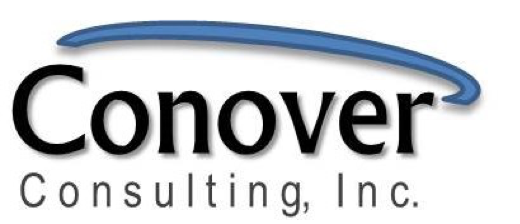The 5 Elements of Toxic Corporate Culture Leaders Must Combat
Why do people quit their jobs, even ones paying well above market averages? This was the question researchers Donald Sull, Charles Sull, and Ben Zweig decided to investigate for MIT Sloan Management Review. While the motives behind employee defections always concern employers, this issue has gained in relevance thanks to the Great Resignation, which has seen more than 4 million workers quit every month since spring 2020. With the U.S. now faced with more than 5 million more job openings than people unemployed—an all-time record—companies of all sizes are increasingly desperate to find quality workers and keep those they have from seeking greener pastures.
To look for clues, the MIT Sloan researchers analyzed online profiles of 34 million employees who quit (for any reason) between April and September 2021. They then broke the data down by industry to find attrition rates for the Culture 500, MIT Sloan’s collection of mostly for-profit companies representing 25 percent of the private sector workforce, all of which are recognized for cultural excellence. They discovered most people who left did so for any of five reasons (and sometimes, in combination).
Accordingly, these are the five areas corporate leaders must focus on and work to improve to avoid being victims of the Great Resignation:
1 -Inclusivity.
“Inclusivity” means more than merely adjusting hiring practices to increase racial, cultural, age, and gender diversity. (Although such diversity has its own benefits.) “Inclusivity” also concerns creating a company culture where employees are given a larger role in what they do and how they do it. In other words, “inclusive” organizations are balanced between decisions that move from the top down (the traditional hierarchal model) but also grow from the bottom up.
An “inclusive” company is also one where people of all types— including the disabled, older workers, members of the LGBTQ community and, yes, women, feel welcome and valued. This is best expressed in how responsibility is assigned, how promotions are allotted, and how pay and bonuses are distributed. According to the authors, the work environments considered most toxic are those in which leaders practice cronyism, favoring long-time friends, fellow university alumni, and/or family members. To keep your people happy, productive, and loyal, just play fair.
2 - Integrity.
Here we’re talking about honesty. About honor. About keeping one’s word. In business, integrity operates on two levels: corporate and individual. Maintaining both are critically important to maintaining a healthy work environment.
Corporate Integrity refers to how a company does business. Does it comply with local, state, and federal regulations? Does it make the sacrifices often necessary to produce quality products or services? Is it a responsible corporate citizen? Or is it the kind of company that cuts corners, misrepresents its offerings, and is always seeking the fastest, cheapest solution to a problem…regardless of the consequences?
Individual Integrity refers to how leaders, from the C-Suite down to the managerial level, deal with individual employees. Do they tell the truth, even when things are bad? Do they keep their promises? Can they be trusted? To attract top talent, you must say what you mean, and mean what you say. It’s just that simple.
3 - Team Cooperation.
There is a school of thought that likens the workplace to a fighting cage. It suggests the best way to maximize productivity is to pit employees against each other, then lavishly reward the winners and discard the losers. This has a certain appeal to the businessperson who believes in Social Darwinism, but employees hate it. And they tend to leave companies adhering to this brutal cutthroat practice. Fast.
In the modern workplace, cooperation trumps competition. The idea is to build teams that work to each member’s strengths and compensates for any weaknesses. A good manager finds everyone a seat on the bus; no one gets thrown under it.
4 - Respect.
Disrespect is a huge predictor of employee defection, according to the researchers. Often subtler than outright abuse, the 5th and final issue to be discussed, disrespect can be just as corrosive. In the workplace, disrespect can take many forms. It can be a manager who treats workers like so many machines, having no regard for their personal needs or private lives. It can be mere snobbishness; the attitude that lower-level employees have nothing to contribute and so their ideas can be easily dismissed. Often, it takes the form of micromanagement, the subtext being, “I’m going to tell you how to do your job.”
A respectful company is one that recognizes the value of every employee, regardless of their station, and treats them as whole human begins.
5 - Abuse.
This one is the real job killer. If you’ve worked for any length of time, you’ve probably toiled under an abusive boss, the kind who yells and screams. Who hurls insults. Who is brazenly sexist or bigoted. Who makes ridiculous demands, then blames everyone else when things go south. In such circumstances, you’ve probably heard others say: “They’re not paying me enough to put up with this crap.” (Or you may have even said it yourself!)
This brings us to an important point. Don’t think you can buy your way out of a toxic work environment. No amount of money can entice employees to stay in a hostile workplace for long. Sure, a fat raise or bonus gets the endorphins running—for a while. But the high of a sudden cash influx dissipates quickly as one grows accustomed to a new, harrowing standard of living. Meanwhile, the pain of constant toxicity endures. Eventually, the urge to jump ship returns. Perhaps sooner rather than later. And in today’s COVID economy, there are plenty of alternatives to explore.
My team has decades of experience helping companies of all types and sizes hold onto employees by creating cultures that are inclusive, honest, cooperative, and respectful. To learn more about how we can enable your organization to become the kind of place where people want to work, please contact me at laura@conoversonsulting.com.

